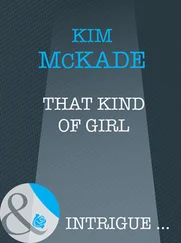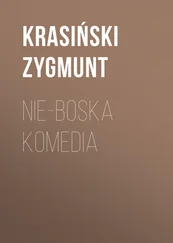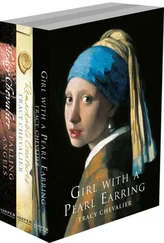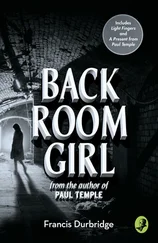It was an overcast day, with a slight drizzle. They seemed to be home. The first to enter after pushing open the tiny gate was Asit: tall, fair, handsome. Then came Hitanghshu, serious, bespectacled, gentlemanly. And behind them, the diminutive me. We crossed the garden to the front porch, wondering if we should call out, what we should say, and so on, when Mr. Dey himself pushed aside the curtain and joined us on the veranda. Clamping his teeth down on his thick pipe, he grunted, “Yes?”
Even vivacious Asit was taken aback at being addressed in this manner. “I. . we. . we dropped by — you’d said. .”
Mr. Dey recognized us in the fading light. “Oh, it’s you. Well. .”
Asit said again, “You had asked us to visit.”
“Oh yes, yes, of course. .” he coughed and continued, “come in, come in, all of you”; parting the curtain, he stood aside to let us through, but we just stood there.
“In you go.”
Trying to enter, Hitangshu tripped on the doorstep of his own house and trod on my toe. It hurt terribly, but what could I do but keep quiet! Dirtying the shiny floor with our muddy shoes, we stepped forward. What a beautifully decorated room, we had never seen anything like it. A Petromax light was burning. Mrs. Dey was seated on a sofa in front, knitting, and further inside, on a chair pushed up against the wall, was our Mona Lisa, her eyes on an enormous blue book on her lap.
Mr. Dey said, “Sumi, these are the three musketeers of old Paltan. This is Keshab-babu’s son, and these. .”
Hitangshu introduced us. “This is Asit, and this is. . Bikash.”
Mrs. Dey smiled and said, “Are the three of you friends? How nice. We see you every day. Do sit down.”
We threw ourselves down on a long sofa, side by side. Mrs. Dey called, “Toru.”
Mona Lisa raised her eyes.
“These are our neighbors — and this is my daughter.”
Mona Lisa put her book down and rose, standing like a slender green sapling, swaying like a plant does in a slight breeze, bowed her head slightly, and then sat down again to lower her eyes to her book.
I thought I was dreaming.
Asit was from Calcutta, much smarter than the rest of us, much more in the know; and as for Hitangshu, he too had been to different places with his father, pronounced his words clearly and with confidence, and besides, his family owned Tara Kutir. Whatever little conversation there was came from the two of them; I was silent, staring at the floor, not daring to say anything lest I betray my rustic accent. The desire to raise my eyes for just a glance of Mona Lisa was eating away at me, but I just could not do it.
After covering topics from how intolerable life was without electricity to how dreadful the mosquitoes in Dhaka were, Mrs. Dey asked, “Do all of you go to college?”
Asit gave the appropriate answer proudly: “Hitangshu has won a scholarship of fifteen rupees for his school examinations.”
“That’s wonderful. My daughter is so scared of mathematics she doesn’t want to take her exams.”
Suddenly a voice rose from the corner. “Baba, how old was Keats when he died?”
Mr. Dey looked at us and said, “Do any of you know?”
Asit blurted out, “Bikash does — he’s a poet.”
“Really?” Mrs. Dey put on a childlike smile and, for a moment — I sensed — even Mona Lisa glanced at me. My palms started sweating. There was a buzzing in my ear.
How long did we stay? Fifteen minutes? Twenty minutes? But when we emerged I was more tired than I was after five or six lectures at college.
Mrs. Dey had forced an umbrella into our hands, but we didn’t open the umbrella, we got wet in the thin drizzle as we disappeared in the darkness of the field. Suddenly Asit said — he never could stay quiet — “Such wonderful people.”
Hitangshu immediately said, “Really wonderful.” I didn’t say anything, I didn’t want a conversation.
A little later Asit said, “You tripped again, Hitangshu.”
“When?”
“As you were about to enter.”
“Of course not.”
“What do you mean, of course not. And by the way, did you greet Mrs. Dey when we entered?”
“Of course.”
Hitangshu paused and said, “But when. . Mona Lisa stood up to say hello. .”
We exchanged glances in the dark, and even in the dark it was clear to each of us that our faces had turned pale. A girl, a woman, had risen to greet us, and we had just kept sitting as though we were turned to stone, didn’t get up, didn’t greet her in return, didn’t say anything, didn’t do anything. They must have thought us rustic, uncivilized barbarians, even Asit Mitra from Calcutta couldn’t help us save face.
I cannot describe how heartbroken we were.
The next day the three of us went back there to return the umbrella. The servant escorted us into the drawing room. . then Mona Lisa herself came into the room. We jumped to our feet to greet her. I smiled and said, “The umbrella. .” “Oh. . Just for this. . Do sit down.” That was how I had imagined the scene, but of course it turned out differently. The servant came again to take the umbrella and disappeared. He didn’t return, nor did anyone else appear. We stood there for a while and then left silently, our heads bowed. None of us could so much as look at any of the others.
No, no. In that beautifully done up room, where every corner glittered in the sparkling white light, where the most extraordinary girl in the world leafed through a thick book, there was no room for us. But what of that? Mona Lisa was, after all, Mona Lisa.
The rain came pelting down, overcast morning, overcast rumbling afternoons, moist blue moonlit nights. After fifteen days of almost incessant rain, the first day that the sun came out, so did we: to discover the car of the best known doctor in town parked before Tara Kutir.
I asked Hitanghsu, “Someone ill in your family?”
“Not at all!”
In their family then? The question was felt without its being articulated. The next day Hitangshu announced grimly, “Someone’s ill in their family.”
“Who?”
“She is.”
“She is!”
That day too we saw the famous doctor’s car, the next day both in the morning and in the evening. Couldn’t we call on them, ask after them, do something? We began to loiter near their home, concealed by the doctor’s car. The doctor emerged, accompanied by Mr. Dey. He didn’t spot us at first, but when he did, he said, “Could you go inside? Mrs. Dey wants to say something.”
Mrs. Dey was standing on the top step of the stairway that led to the front veranda. Asit paused, a step below her, and said, “You asked for us, mashima ?” These Calcutta boys could use these terms with ease, I was never able to.
Mrs. Dey said hoarsely, “Toru is ill.”
“What’s the matter?”
“Typhoid.” She uttered that horrifying word softly and said, “It’s terrible.”
Asit said, “Don’t worry, we’ll take care of everything.”
“Can you, can you please? She’s my only child. .” Her eyes brimmed with tears.
Mona Lisa, you never knew, you’ll never know how good it felt, how happy we were, back during the monsoon of ’27, in old Paltan, day after day, night after night, during the fever, the fervor, in the milling darkness, the chilling shadows. For one-and-a-half months you lay in bed, for one-and-a-half months you were ours. For one-and-a-half months that steady rhythm of happiness never once stopped beating in our hearts. Your father went to office, peeped in once he returned from work, then deposited himself on his easy chair; your mother had no respite all day, but she couldn’t go on through the night, she fell asleep on a camp cot in your room; and we took turns to stay up all night, sometimes two of us together, once in a while all three, but usually one of us by himself. And it was I who savored most the joy of staying up by your side, all by myself — Asit rushed around all day, Hitangshu too. The nearest place to get ice was a mile away, the medicine shop was twice as far, the doctor lived three-and-a-half miles away — some days Asit went back and forth ten times or more, his clothes, wet with rain, drying on his body; another time Hitangshu went off at twelve thirty at night for ice, the shops were all shut, the station lifeless, by the time he could get to the ice depot by the river, wake the people there and return with the ice, it was two in the morning. I would keep checking how much of the ice in the ice bag had turned to water, while Asit collected the fragments of ice scattered around the bathroom. Because I didn’t know how to ride a bicycle I couldn’t do any of the running around. I hovered near your mother, helped her out with whatever she needed, poured out the medicine, noted the temperature, carried the doctor’s bag when he came and when he left. Then evening fell, then came the night, an ocean of darkness outside, in that ocean you and I, floating, in a dimly lit boat — you will never know any of that, Mona Lisa.
Читать дальше












